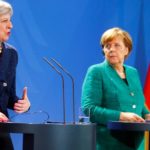
As a looming government shutdown over the debt ceiling threatens domestic stability, U.S. foreign policy finds itself at a crossroads, marked by increasing dysfunction and a growing trend toward isolationism. Political divisions and partisan gridlock have paralysed the nation’s ability to craft and implement a coherent foreign policy strategy.
At the centre of this crisis is Donald Trump, whose return to the presidency in 2024 has ushered in a flurry of executive orders that emphasise unilateral decision-making, both in domestic governance and foreign affairs. Two weeks into his second term, Trump has fundamentally reshaped the vision for U.S. foreign policy, prioritising short-term political objectives over long-term strategic interests by firing civil servants, dismantling diversity initiatives, and redirecting foreign aid for political gain.
Trump’s reliance on executive orders and agreements follows a broader trend of shifting foreign policy power away from Congress and toward the executive branch. With the expansion of collective defence since the 1960s, executive orders have increasingly shaped U.S. foreign policy. While they offer flexibility for expedient action, these orders lack the stability and legitimacy that formal treaties provide, making long-term policies vulnerable to reversal by future administrations.
The historical penchant for executive agreements has created a volatile diplomatic environment. During his first term, Trump’s withdrawal from major international agreements, such as the 2016 Paris Agreement and the 2018 Iran nuclear deal, undermined U.S. credibility and painted the country as unreliable on the world stage. This trend is likely to continue as Trump has initiated, or is considering, exits from critical international organisations and security frameworks, such as the United Nations Human Rights Council (UNHRC), the World Health Organisation (WHO), and NATO.
The dismantling of the U.S. Agency for International Development (USAID) by Trump, with support from tech billionaire Elon Musk, further erodes America’s standing as a reliable strategic partner. Beyond threatening job security for agency employees and the broader humanitarian sector, this budget freeze jeopardises aid recipients’ health and could disrupt the global investment climate.
Trump’s tariffs on traditional allies, including the European Union, Canada, and Mexico, highlight his zealous commitment to the “America First” doctrine. Canada, a key U.S. ally, responded with retaliatory tariffs on $107 billion in U.S. goods, disrupting trade and supply chains. These tariffs risk job losses and higher consumer costs in both countries, while signalling the U.S.’s willingness to use economic power against close partners. Although temporarily paused, the tariff regime has cast doubt on the future of U.S.-Canada relations.
Similar tensions have emerged with Mexico, where President Claudia Sheinbaum threatened to impose 25 percent tariffs on U.S. goods, straining the vital U.S.-Mexico relationship, which is crucial to addressing illegal immigration and drug trafficking. Economists warn these tariffs could worsen inflation and disrupt daily cross-border trade for all three interconnected economies. Meanwhile, Trump’s ongoing trade war with China has escalated with new tariffs on U.S. energy exports, complicating relations between the world’s largest economies.
Trump’s “reciprocal trade” approach may secure short-term gains but risks undermining U.S. credibility in free trade and multilateral cooperation. Continued disengagement and erosion of trust could hinder America’s ability to address global challenges like climate change and national security threats.
Trump’s erratic foreign policy, though popular with his base, signals a transactional and confrontational stance that alienates allies and weakens America’s global influence. His controversial rhetoric, such as suggesting Palestinians in Gaza be relocated to neighboring countries, has undermined the U.S.’s traditional role as a neutral mediator in the Middle East.
To restore its global leadership, the U.S. must overhaul its approach to foreign policy. In Dysfunctional Diplomacy: The Politics of International Agreements in an Era of Partisan Polarization, Jeffrey Peake advocates for a return to a more balanced power structure, where Congress plays an active role in treaty approval. This would ensure that U.S. commitments are more stable and reflective of long-term national interests. Greater collaboration between the executive and legislative branches would help promote policy continuity and legitimacy.
Lastly, the U.S. must re-engage in multilateral diplomacy to rebuild its credibility on the world stage. Restoring cooperation with global partners on critical issues such as climate change, nuclear disarmament, and human rights will be essential in reestablishing U.S. influence. To effectively address the world’s most pressing challenges, the U.S. must demonstrate consistency and a renewed commitment to multilateralism — values that have been notably absent under Trump. Through domestic reform and a return to long-term diplomatic strategies, the U.S. can once again lead effectively in global governance.
Edited by Connie Newstead
Image: ‘No Foreign Entanglements’ via Wikimedia Commons, 1941 // Public Domain



Average Rating